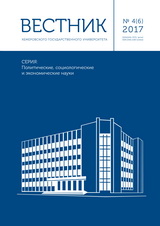Clusters are considered as one of the types of local production systems, the mandatory features of which are the availability of economic opportunities for selfdevelopment, manageability and security of various public and private institutions. Among the main advantages of clusters as a form of organization of production in the territory are the territorial localization of the main mass of economic entities participating in the cluster; innovative orientation; opportunities to enhance the competitive advantages of the cluster location region; taking into account the positive synergies of the territorial agglomeration. The paper gives a brief description of the world experience in the formation of modern clusters, including the approaches taken as the initial reference point for strategic development abroad, including the EU countries, as well as the concept of clustering as a way to use regional resources and scientific and technical potential effectively. The authors enumerate the main difficulties in the implementation of cluster policy in the conditions of Russia, including the weak positions of applied science; lack of an effective mechanism to stimulate the development of small and medium-sized enterprises; shortcomings in the management system; problems of financing, etc.
local production systems, territorial-production cluster, innovation, regional competitiveness, cluster policy

















